But to a suspicious mind it could suggest that when the Bradshaws had filled the tanks the previous day, they had known Denny would not be needing his.
Lucas’s interview with the twins was neither reassuring nor conclusive: The Bradshaws, he said, reacted as if dead inside. Maybe shock, maybe forewarning-Vega was a ranger, not a shrink.
“Dead bodies seem to follow you around, Anna. Are you sure you never auditioned for Night of the Living Dead when you lived in New York?”
“I saw it,” Alison stuck in. Ally was sitting in Anna’s canvas canoe chair between her mother, who occasionally dipped a paddle off the bow, and Anna, who worked all of the mobile magic from the stern. “There were all these dead people with white faces and black lips who walked like this.”
“Don’t stand up!” Anna and Christina said in unison.
“Like this.” Alison demonstrated from her seat, swinging her arms like a chair-bound Frankenstein’s monster. “They were supposed to be scary but they were just stupid. It was in black and white,” she said as if that explained everything.
“ Night of the Living Dead scared the pants off me,” Anna said. “For weeks afterward all my roommates had to do was walk stiff-legged-”
“Don’t stand up!” the two women repeated as Ally squirmed.
“-and I’d turn totally paranoid,” Anna finished.
“What’s paranoid?” Ally asked.
“Being scared of things that aren’t really going to hurt you,” her mother replied. “Pair-ah-noyd. P-a-r…”
When Tuesday’s Ranger III had docked, Chris and Ally had been on it. “We needed to be at One with Nature,” Chris had said but she’d come because Anna’s letters had sounded lonely. Christina hated nature unless it could be pruned into an attractive foundation planting.
Anna smiled. If one couldn’t go home, the next best thing was having home come to the wilderness. Christina Walters, with her soft white hands, deplorable J-stroke, and antipathy toward pit toilets, carried homeyness with her the way lilacs carried perfume. Anna knew one day she would lose her housemates to a sweetheart. Christina would not be single long.
“I wish I were gay,” she said over Alison’s head. Literally over the little girl’s head, not figuratively. At five Ally was more sophisticated than Anna had been at thirty.
“Would you marry Ally and me?” Christina asked.
“In a second.”
“No good.” Christina laughed, caught a crab with her paddle, and splashed her daughter and Anna. “I only go for women with more impressive b-o-s-o-m-s.”
“ Et tu, Brute ,” Anna grumbled, and: “You do not.”
“You haven’t met Bertie.”
The bicycling friend: Anna might lose them sooner than she had thought. It would be hard not to meet Chris’s date at the door, cross-examine her about her intentions and if she could support Chris and Ally in the manner they had grown accustomed to. Anna smiled wryly. They all three lived on NPS wages. Any greasy-spoon waitress could answer the last question with a resounding “Yes!”
“Don’t worry, Aunt Anna,” Ally was saying. “If Momma and I get married again you can come live with us. If you bring Piedmont,” she added as a condition.
“We’ll adopt you,” Chris said.
“Paddle,” Anna returned. “You guys weigh a ton.”
“An-oh-wreck-see-ah,” Christina said. “No one in the Walters family will ever be skinny. It indicates a stinginess of the spirit. We only accept your meagerness because it comes from being a rotten cook, not a bad person.”
Anna paddled. She had that rare sense of knowing, at the moment it was happening, that she was happy, that life was okay. She stopped talking to better enjoy it. Ally and Christina’s chatter pattered over her like warm rain.
“How much further?” Ally asked after a few minutes.
“When do you bring it up?” Christina said at almost the same instant. “It” meant Denny Castle’s body. Chris knew Denny. She’d met him once in Houghton and again when she’d visited Anna on the island in late May. But Christina chose not to personify death, not to call it by name. Euphemisms-“passed away,” “no longer with us”-came naturally to her.
Once Anna had thought it an affectation. In the year she had known Chris it had persisted to such an extent that she now classified it as, if not a religious taboo, at least a superstition. Molly might well have termed it a neurotic denial of human mortality-but that’s what Molly was paid for. And though Anna believed everything her sister told her on principle, she tended to look askance at the labeling of the less socially ratified personality traits as “illness” and the therapists, quite profitably, as the “cure.”
“Three quarters of a mile and Friday,” she answered cheerfully. Even dark thoughts and tedious practicalities took on a different air when shared.
“Do you have to dive so deep?” Christina asked.
“Yup.”
“Are you scared?”
“Yup.”
“Are you par-ah-noyd?” Ally asked.
“Yup.”
“Do you want to talk about it?” Chris asked.
“Nope.”
“Nope,” Ally echoed, popping the p so it sounded like a cork coming out of a bottle.
The weather held all day. The water stayed smooth and flat. Inland it would be humid, buggy, but on the water it was cool. The shoreline in McCargo Cove was just warm enough for a little cautious sunbathing. Christina worked on matching her old tan with her new bathing suit and getting through Ryan’s Daughter because Bertie had recommended it. Anna skipped stones, tracked foxes in the sand, and annoyed caddis fly larvae with Ally.
Midafternoon they launched the canoe and paddled back up the long narrow cove. Sailboats moved slowly in McCargo’s protected waters, their sails as colorful and delicate-seeming as butterfly wings. Three miles long and no more than an eighth of a mile wide, McCargo was a favorite anchorage.
Anna planned an early picnic supper at the Birch campsite. Birch was a pretty little island set at the mouth of Brady Cove, a lagoonlike pocket of water off McCargo. From Birch they could watch the boat traffic and, if they got lucky, Anna could show Chris and Ally a moose. Brady Cove, behind the island, was barely six feet deep and moose often came there to browse. Several boaters had reported seeing a cow with twin calves in the past week.
A more prosaic reason was because fires were allowed on Birch. Open fires had been banned at most of Isle Royale’s camps. The areas got so much use, sites had been stripped bare by campers looking for firewood. In places branches and bark had been torn from trees as high as a man could reach. In a year or two fires would probably be banned park-wide. At present Birch was still legal, and Anna wanted a fire for Ally. Marshmallows, the smell of smoke, gathering twigs, being warned half a dozen times a minute by Mom- the core camping experience.
A thin line of smoke drifting out over the water announced that Birch was occupied. Anna couldn’t hide her disappointment. Hot dogs fried over the roaring invisible flame of her Peak 1 would be a poor substitute.
“We’ll eat down by the water,” Chris said. “That way we can see better. Besides, it’s always less buggy on the shore out of the trees.” She knew Anna and Alison had their hearts set on building a campfire. She was trying to make them feel better. They didn’t.
Alison sulked while Anna dragged the canoe up on shore and unloaded it. Anna tried to keep up her end of the day but she felt a childish resentment that her plans had been disrupted. “I’m the ranger,” she said peevishly.
“That and a dollar won’t even get you a cup of coffee here,‘’ Chris returned. She excused herself to find the ”ladies’ room“ and left Anna and Ally sitting with their legs dangling over the edge of the dock, both steadfastly refusing to play the Pollyanna Glad Game.
Читать дальше
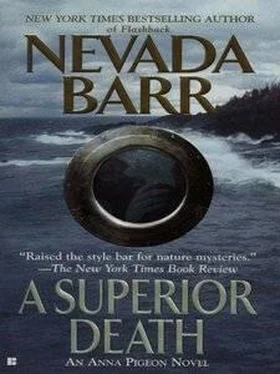
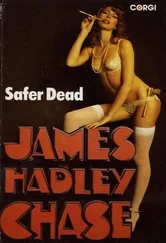
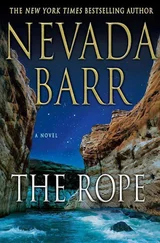
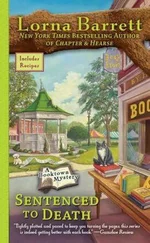
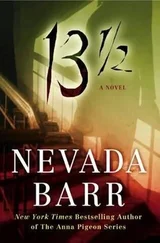

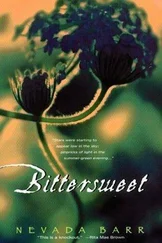
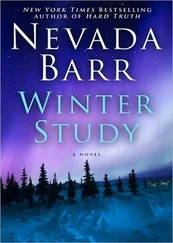
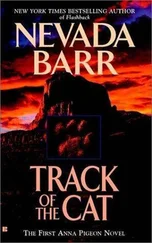
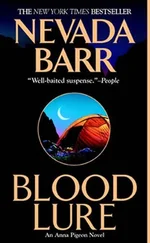
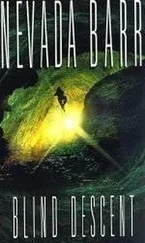
![Джеймс Чейз - Safer Dead [= Dead Ringer]](/books/430347/dzhejms-chejz-safer-dead-dead-ringer-thumb.webp)
